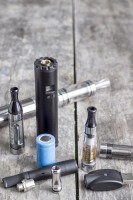Categories
- Additional Insured
- ChildrensProducts
- Claims Made
- Cyber Insurance
- Dietary Supplements and Nutraceuticals
- Ecigarettes
- Firearms Insurance
- Food Products
- Foreign Products Liability
- Foreseeable Misuse
- Frivolous Lawsuits
- General Liability
- Industrial
- Infographics
- Intellectual Property
- Looking ahead
- Marijuana Liability
- Medical Products
- Mutual Indemnification
- Nano Technology
- News
- Online Sellers Insurance Requirements
- Outsourcing
- Piercing The Corporate Veil
- Pollution Liability
- Product liability
- Product Recall
- Retail Chain Store
- Start-Up Business
- Statute of Repose
- Surplus Lines Insurance
- Technology
E-Cig Distributor DOs and DON’Ts

Things you may not have thought about
Studies, so far, have not determined the typical four ingredients in e-cigs – liquid nicotine, propylene glycol, vegetable glycerin and food flavoring – to be serious health hazards, as long as the ingredients are consumed correctly. Traditional cigarettes have, on average, more than 7,000 chemicals, 80 of which are linked to cancer. One has to wonder why it is taking so long for the FDA to promote e-cigs as a healthier alternative to smoking cigarettes.
If you are an e-cig distributor or importer, it appears the most likely Product Liability risk you face is batteries exploding or catching on fire. Batteries exploding or catching on fire means there is potential for bodily injury or property damage or both. What follows is advice on how to best minimize the risk of battery explosions or fires.
The DOs
- Buy and sell only the best quality batteries available. This will cost you and your customer a little more, but nothing compared to the increase in premiums after a product liability claim. Currently, the best batteries are lMR (Lithium Manganese) or hybrids (NiMH). These types of batteries are considered chemically safer and do not require protection circuits.
- Buy and sell only top quality chargers. Some of the most recommended chargers come from Pila, Nitecore and Xtar.
- Use Li-Mn or Hybrid rechargeable batteries or largest batteries possible because they provide more power to efficiently power an atomizer. Using small Li-on batteries can often fail because they do not have enough reserve power to power the atomizer and can quickly become overstressed. Small Li-on batteries are known to explode under certain circumstances such as over-charging, short-circuit, over-discharge and over-voltage.
- Take time to develop proper Warnings. Make sure Warnings are posted on the packaging, website and in the instructions.
The DON’Ts
- Do not buy batteries from unknown or unproven sources, but only from verified sources and supply chains . Counterfeiting is a growing problem. Counterfeiters are buying up rejected Li-on batteries in bulk, stripping the covers and repackaging them with labels of the most popular brands.
- Do not skimp on the warnings and instructions. Warning and Instruction Defect is common entry into a product liability lawsuit. If you are selling lithium batteries, it is even more important to have detailed instructions and warnings because there are so many things that can go wrong. If you are selling mechmods that deliver super high power vaping, you should include very detailed instructions as to the types and wattage of batteries to be used. Only recommend safe chemistry batteries such as lMR cell or Li-Mn’s.
- Do not sell Li-on batteries; it is not worth the risk. There are now safer chemistry batteries available that deliver higher wattage and don’t have the explosion or fire issues and the counterfeiting issues of the Li-on or Li-FePo4 batteries. Lithium Manganese cells need no protection circuitry on the battery and are considered a safer chemistry battery. The only drawback to the Li-FePo4 batteries appears to be the heavy counterfeiting. If purchased from reliable sources they are considered safer chemistry batteries.
- Do not sell APVs without locking or master on/off switches that are separate from the actuator switch.
- Do not sell metal tubemods without large gas vent holes.
There are so many things that can go wrong with batteries. It is imperative that e-cig importers and distributors make time to understand and employ stringent risk management in this area.
-
 Click the Button Below to Get Your
Click the Button Below to Get Your
No-Obligation Quotes from Among the
Top 18 Leading Insurance Carriers Today -
Recent Industry News
- How to Prevent Nuclear Product Liability Verdicts
- Amazon Sellers and Vendors Strategy Including Insurance Requirements
- Walmart Sellers Insurance
- Product Liability Limit Requirements of Online Sellers
- State-by-State Product Liability Analysis of Laws Impacting Businesses
- Children’s Product Liability: Strange Claims and Need for Insurance
- Product Liability vs. Environmental Insurance for the Chemical Industry
- Product Liability in the 3D Printing Industry: New Materials and Their Significance
- Product Liability Concerns in Agricultural Equipment Enhanced with Artificial Intelligence
- Navigate Product Liability in Battery and Solar Industry
Monthly News Archives
